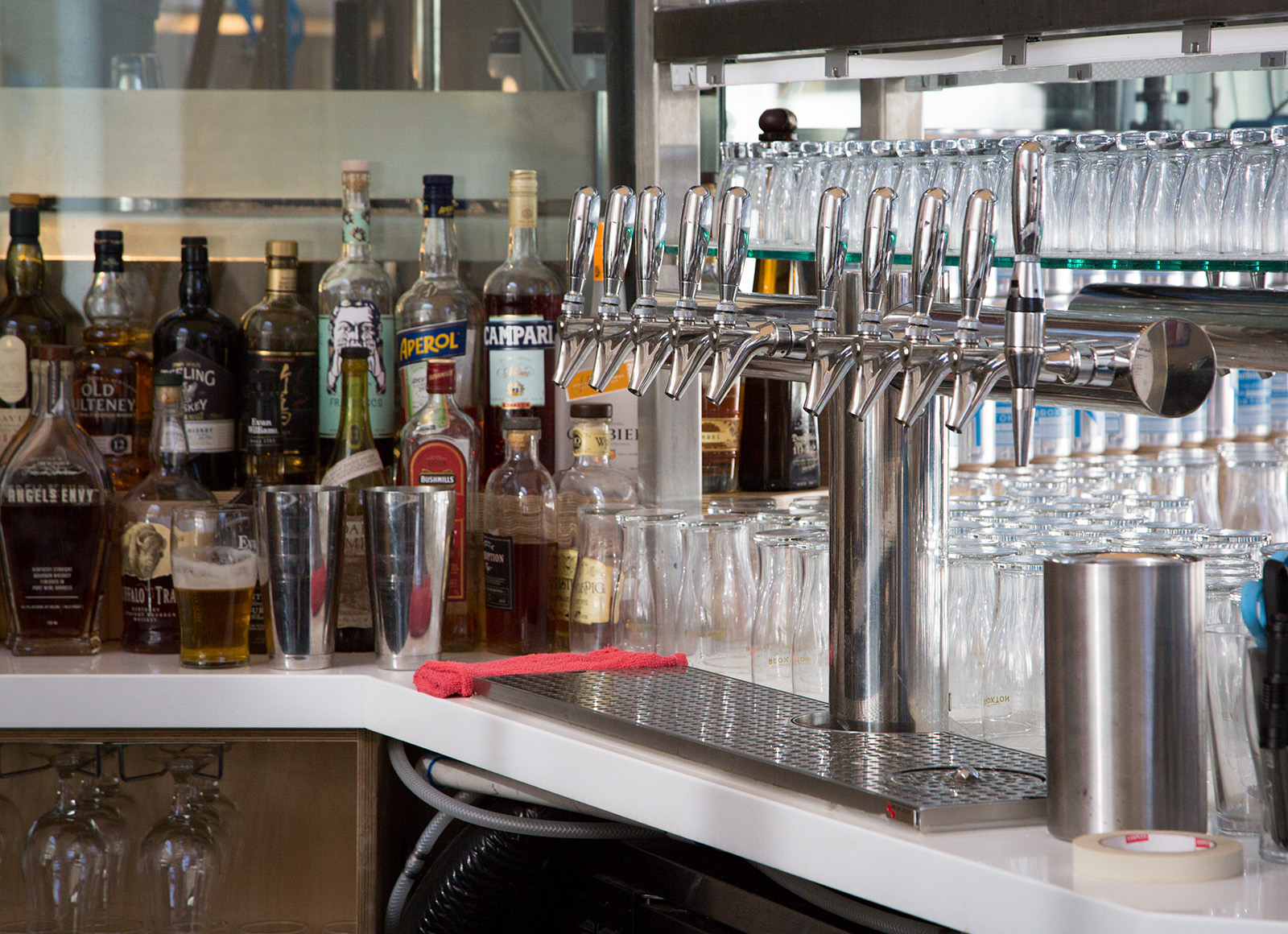California senate bill proposes extended alcohol service hours in urban areas

If Senate Bill 58 is approved, Los Angeles and other cities could extend alcohol serving hours by two hours. (Tanmay Shankar/Daily Bruin)
By Stephanie Lai
April 5, 2019 1:25 a.m.
Los Angeles residents may be able to buy alcohol later at night if a California senate bill is passed.
Senate Bill 58, which would extend alcohol serving hours for businesses to 4 a.m., received support and opposition from local governing bodies. California businesses are currently not allowed to serve alcohol between 2 and 6 a.m. If passed, Los Angeles and other cities could extend alcohol serving hours by two hours.
Some say the bill could increase business revenue, while others worry that extended alcohol serving hours would lead to safety issues and drunk driving.
Sen. Scott Wiener, a Democrat who represents a district encompassing San Francisco, introduced Senate Bill 58, otherwise known as the Alcohol Beverage Control Act, for the third time in March. A version of the bill was last vetoed in 2018 by former Gov. Jerry Brown because of the potential for increased drunk driving.
Victor Ruiz-Cornejo, a spokesperson for Wiener, said the bill gives 10 California cities the authority to create their own processes to permit alcohol serving hour extensions. The cities would work with the California Highway Patrol to develop a process and monitor DUI rates. The bill would apply to several cities in the LA area, including Cathedral City, Long Beach, Los Angeles and West Hollywood, but does not require them to take any action.
The cities included in the bill all expressed interest in extending alcohol serving hours to Wiener. Los Angeles was included because Mayor Eric Garcetti expressed interest last year and sent Wiener’s office a letter in March, he said.
The North Westwood Neighborhood Council voted in support of the bill Wednesday.
Michael Skiles, president of the NWWNC, said the council endorsed the bill because it thinks the current 2 a.m. restriction is outdated and impedes traffic.
Skiles said he thinks if operating hours are extended, customers will leave at different times rather than flooding the streets after 2 a.m. He added the council felt the current restriction is outdated since it was set 80 years ago after Prohibition ended. Skiles said drunk driving and safety concerns are no longer as prominent due to the rise of ride-sharing companies like Uber and Lyft.
Josh Trifunovic, owner of Rocco’s Tavern and NWWNC member, said he believes the bill would give customers more time to socialize and allow them to stay out later. Trifunovic said extended operating hours would create more sales for Los Angeles bars.
Los Angeles City Councilmember Paul Koretz, representing Westwood and surrounding areas, motioned for the city council to oppose the bill in March, citing concerns over DUI rates and alcohol-related injuries or deaths in Los Angeles. Koretz said he is also concerned about drunk drivers impinging on early morning rush hour traffic.
“If you add two more hours of drinking, you’ll have two more hours of law enforcement and emergency services, and in many cases people will be two hours drunker and so the problems will be more severe,” Koretz said. “I think the fact that people lose their lives offsets the value of having a little more entertainment for a couple more hours.”
Ruiz-Cornejo said Wiener’s office has evaluated research on the correlation between extended nightlife operating hours and DUI rates, citing a 2014 Stockholm University study. The study showed a reduction in police-reported activity after extending nightclub operating hours in Visby, Sweden. In addition, the study found a 71% decrease in reported assaults at night per week after the extension.
Taylor Fife, a graduate student at the UCLA Anderson School of Management, said he thinks the city should combat safety concerns by penalizing drunk driving more heavily instead of restricting nightlife businesses.
Fife added the bill would allow legal nightlife businesses to compete with unlicensed and illegal underground nightlife events. He said he thinks limited nightlife options contribute to illegal nightlife events, since most clubs do not stay open past 2 a.m, while many illegal events do.
“If places did stay open later, I could see legal parties directly competing with underground and renegades,” Fife said. “If you’re a promoter there’s less risk in hosting in clubs.”
He said he thinks legal nightlife businesses are safer because of stricter building regulations and because people are more willing to contact authorities in the event of an emergency. However, he said he thinks illegal nightlife events are generally safe.
Andrew Thomas, executive director of the Westwood Village Improvement Association, said he thinks the bill would have little impact on Westwood because there are not many businesses that stay open until 2 a.m. in the area. However, he believes some businesses will want to take advantage of the bill.
“I think alcohol sales are an important economic driver (and) that (it) is often not fully understood or appreciated how important these sales are to a restaurant,” Thomas said. “Restricting alcohol impacts a business’ revenue stream and chances of being successful.”

